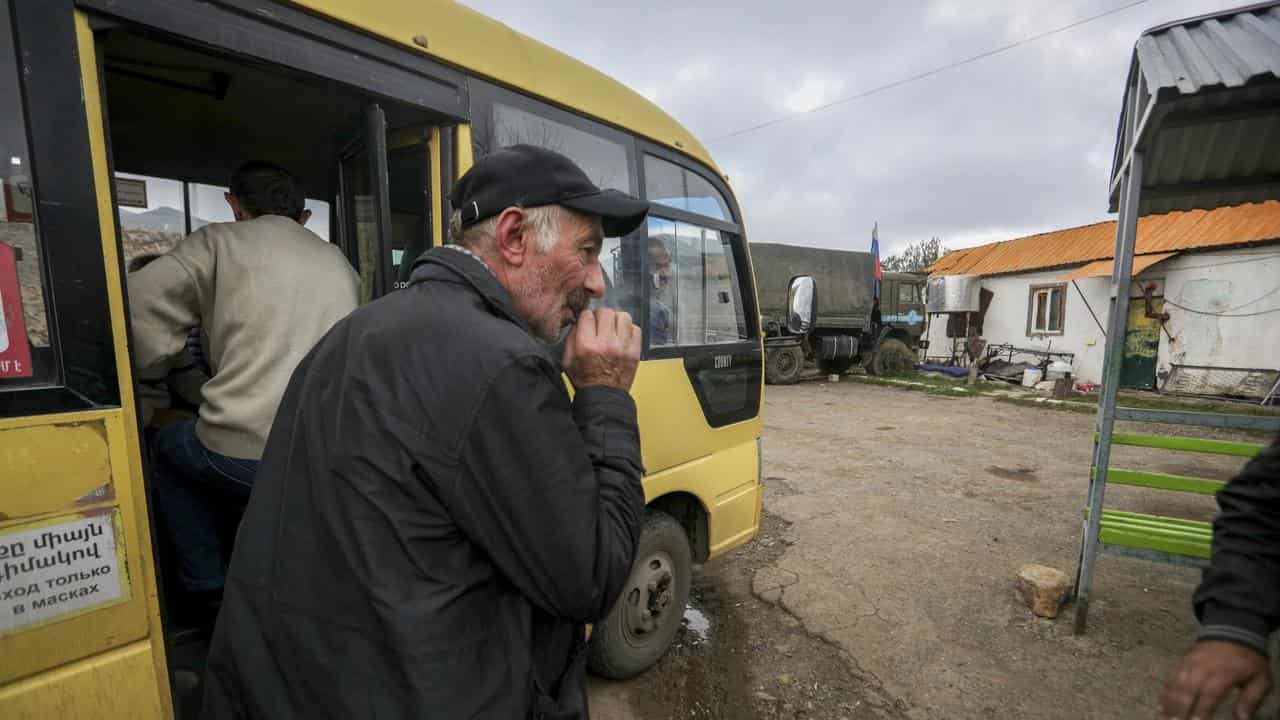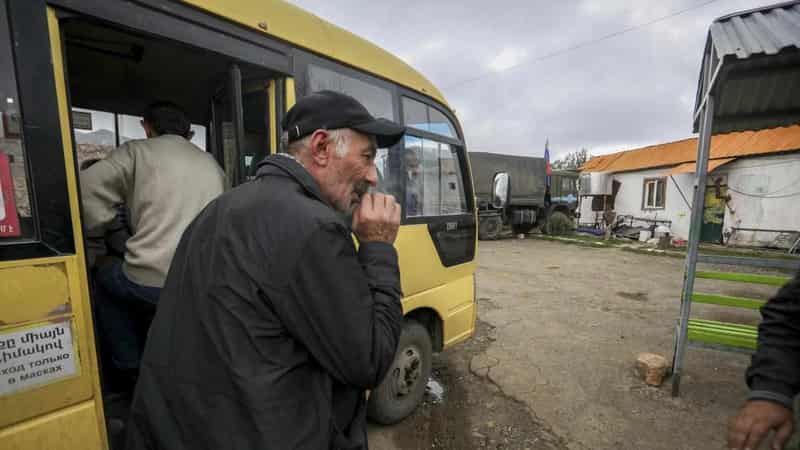
The last bus carrying ethnic Armenian refugees fleeing Nagorno-Karabakh has left the mountain enclave in Azerbaijan, an Armenian government spokeswoman in Yerevan says.
Nazeli Baghdasaryan said that 100,514 refugees who had fled their homes in the enclave had arrived in Armenia.
Others had left in the private vehicles, she said.
Baghdasaryan said many of the refugees were suffering problems with their health or were bedridden.
Any Armenians still in the region should apply to the Red Cross, she said.
The Azerbaijani government has for days insisted that there are no grounds for flight and that residents would be integrated in accordance with the country's laws.
President Ilham Aliyev is seen as an authoritarian ruler, and press freedom is limited in the country, which has come in for criticism on human rights grounds.
Speaking in Baku on Monday, Aliyev emphasised that Azerbaijan was characterised by multiple ethnicities and religions.
"We live as a family," he said according to local media.
"The time has now come to create freedom in the Caucasus."
He had previously announced that tens of thousands of Azeris would move to Nagorno-Karabakh.
Armenia has accused the Azeri government of ethnic cleansing.
A United Nations team visiting Nagorno-Karabakh did not see any damage to civilian infrastructure such as hospitals, schools and housing or to cultural and religious sites, UN spokesman Stephane Dujarric said on Monday.
The team on Sunday visited the Karabakh capital known as Stepanakert by Armenia and Khankendi by Azerbaijan.
"Our colleagues were struck by the sudden manner in which the local population fled their homes and the suffering that the experience must have caused them," Dujarric told reporters.
"They did not come across any reports – either from the local population or from others - of violence against civilians following the latest ceasefire," he said.
"No destruction of agricultural infrastructure or dead animals were seen by members of the UN team."
The UN mission aimed to assess the situation on the ground and identify humanitarian needs of both people remaining and those on the move, Dujarric said, adding that community representatives told UN officials "between 50 and 1000 ethnic Armenians remain currently in Karabakh".
Dujarric said no shops seemed to be open in the city and that Azerbaijan was preparing to resume health services and some basic utilities in the city.
"The team stresses the need to rebuild trust and confidence, adding this will require time and effort from all sides," Dujarric said.
"The UN plans to continue to regularly visit the region."
Last month, Azerbaijan launched a military offensive in the contested region, forcing the capitulation of the self-styled Republic of Artsakh, which is not internationally recognised.
Its Armenian leaders announced that the republic would be dissolved from the start of next year.
with Reuters









